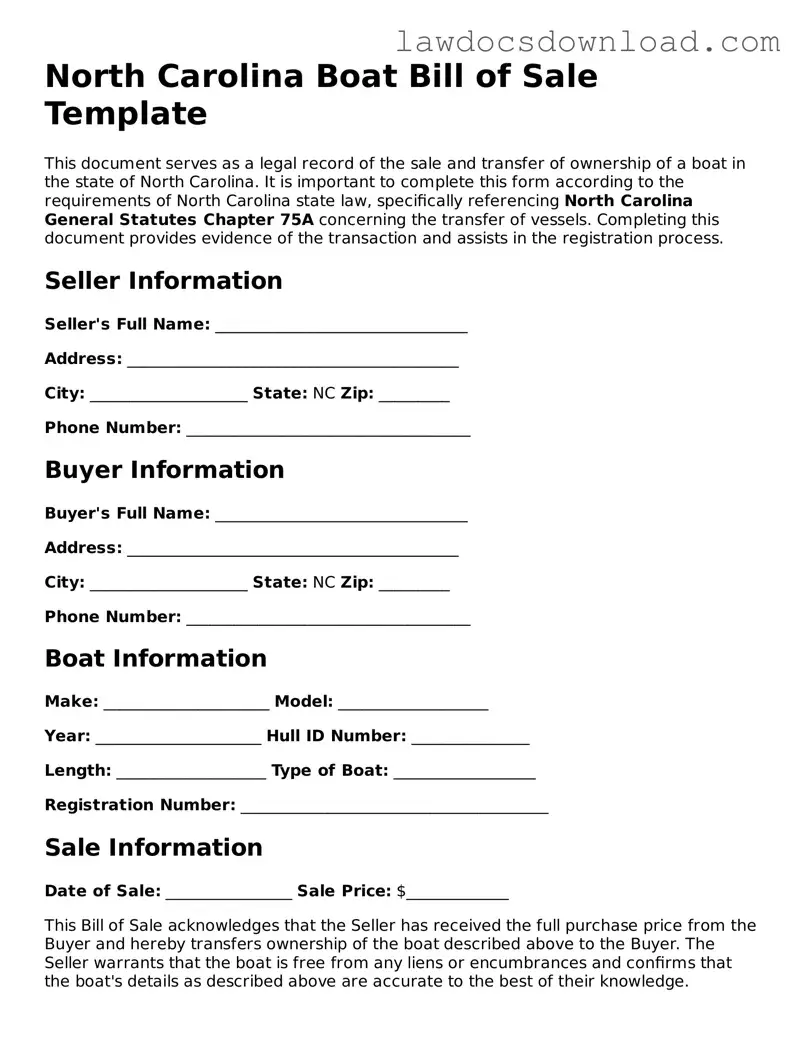Legal North Carolina Boat Bill of Sale Form
The North Carolina Boat Bill of Sale form is a legal document that records the transfer of ownership of a boat from the seller to the buyer. This document is essential for both parties as it provides detailed proof of purchase and ensures the legality of the transaction. It is crucial in the registration process of the vessel under the new owner's name.
Launch Boat Bill of Sale Editor Here

Legal North Carolina Boat Bill of Sale Form
Launch Boat Bill of Sale Editor Here

Launch Boat Bill of Sale Editor Here
or
Free Boat Bill of Sale
Get this form done in minutes
Complete your Boat Bill of Sale online and download the final PDF.